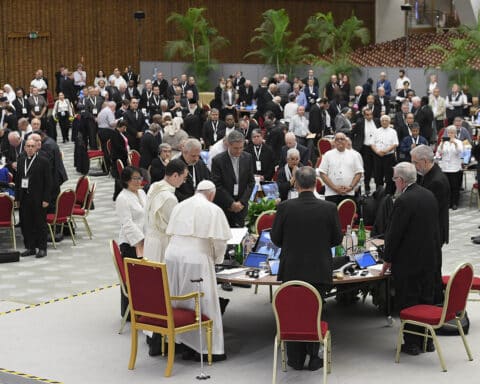“A lie can travel around the globe in the time it takes the truth to get its boots on.”
The line, or variations of it, has been attributed to Mark Twain, Jonathan Swift, Terry Pratchett, Confucius and various Victorian-era preachers, but its authorship cannot be rightly pinned down. That’s not surprising; a sentiment so true has likely arisen organically from frustrated minds in every generation because, as the saying goes, “T’was ever thus.” And today the expression is truer than ever.
We live in an age of unprecedented access to each other’s heavy complaints, goofball observations and impulsive declarations; we’re instantly responding to them, too, thanks to social media platforms, text messages and the rest of it. Ideas spread wildly, before they’re even fully thought-out, and so do reactions.
You’d think that because we’re all saying so much, so quickly, the world might be forgiving about a misspoken phrase — that people might consider how often they express themselves poorly while searching for the “mot juste,” and therefore make a little room for mercy.
You’d think that, but you’d be wrong. At this point, reaction has replaced reason and has been given unwarranted regard and respectability, like a cheap scooter that can weave through clogged traffic while the Rolls Royce of judicious thought lags behind, beautifully turned out but too heavy to keep up — soon just a speck in the rearview mirror.
Anticipate
Zippy emotionalism currently has the edge, and the scooter — way out in front, scouting the terrain for the next pile-up — has no interest in (or sympathy for) wobbly words or tardy truth.
So it behooves all of us to be thoughtful in our speech and our writing, and to train our tongues and pens to anticipate the unforgiving down-shouter tendencies of a world that barely hears before it bellows a return — that often misses the point while readying a sharpened spear of rebuke.
Anticipating how the ersatz word warriors (who are legion) will react can help us devise strategies of communication capable of muting the war whoops and sheathing the swords unto pointlessness.
This is not simple advice and it is, naturally, more difficult in speech than in writing, particularly during interviews, where one is trying to be both succinct and clear — two goals sometimes at odds with each other. It is advice, however, that I offer in good faith to our bishops and Church leaders, who keep finding themselves needing to clarify, clarify, clarify, either because they’ve honestly misspoken or because of some detestable little dust-up based upon oddly missing context.
You can do better, hierarchs! Anticipating and preventing unfair reaction from the busiest and loudest scooters is sound strategy. When consenting to an interview request, one can reasonably imagine the sorts of questions that will be asked, so do that: Imagine them, and then imagine your answers. See what small details, tired phrases or expeditious shortcuts in your remarks might trip you up like a nasty pothole if you are moving too fast, and then consider how to avoid hitting it.
Slow down
One hint: slow down. It’s alright to take a moment to think before answering, and for people to witness your thoughtfulness.
Then — whether you are speaking or writing — take a look at the headlines, both in secular media and in the Catholic press, too, so you can get a sense of what is happening in the moment, because, ahem, you’re a hierarch. Given your position, you may well be asked about whatever it is.
And don’t worry: if you are unaware of a headline — or simply not fully up to speed on an issue — simply admit it. Better to truthfully say you need to look further into a matter before you can reasonably comment on it than to offer some savvy-sounding bit of boilerplate that either says nothing or sounds too slick by half. We, the flock, are not really looking for slippery, corporate-sounding speech from our spiritual leadership. A humble, “I need to think about that,” will play better both on the news and in the pews.
Finally, accept that some media outlets (both secular and religious) are committed to grabbing the sensationalistic, cherry-picked sound bite or creating a dubious but SEO friendly headline. Keeping your remarks as clear, to-the-point and self-effacing as possible will make you look less insulated and exalted — more normal and human.
And that’s a good look, normal and human. People like that look, especially in their shepherds.
Long before the advent of Twitter or Facebook, a Baptist friend of mine would send frenzied emails my way, attaching reports with hot-as-August headlines, asking how the pope, or the curia or the mysteriously vague, nameless “Vatican” could possibly say this or that and be in line with Scripture.
My invariable answer was, “Wait three days and the truth will catch up. You’ll find it in much smaller type, in section B — somewhere before the car ads and box scores.”
It shouldn’t be that way, but all too often it is. Anticipating how your words will be received is like always keeping your boots on, in readiness to serve the truth.





